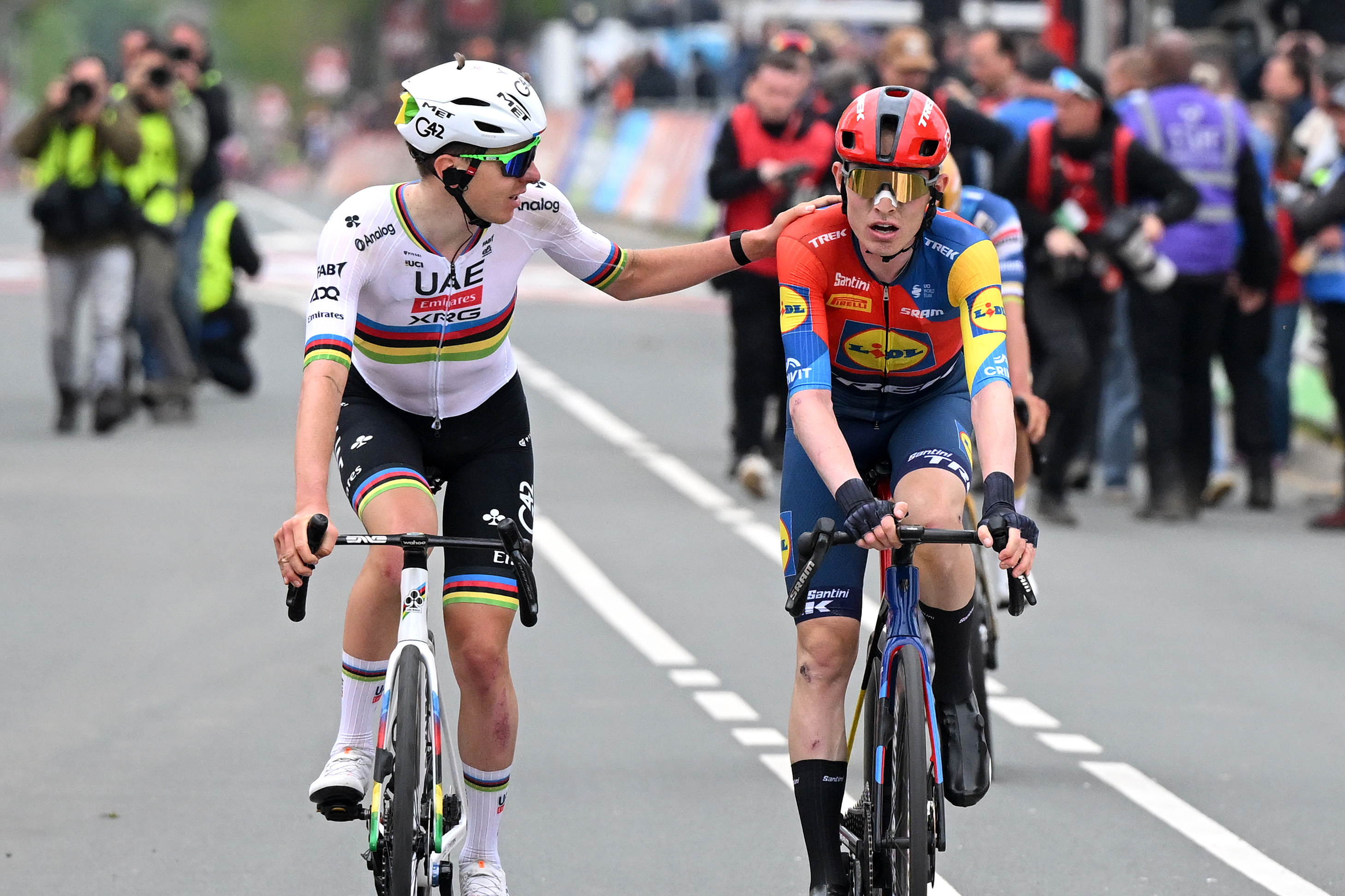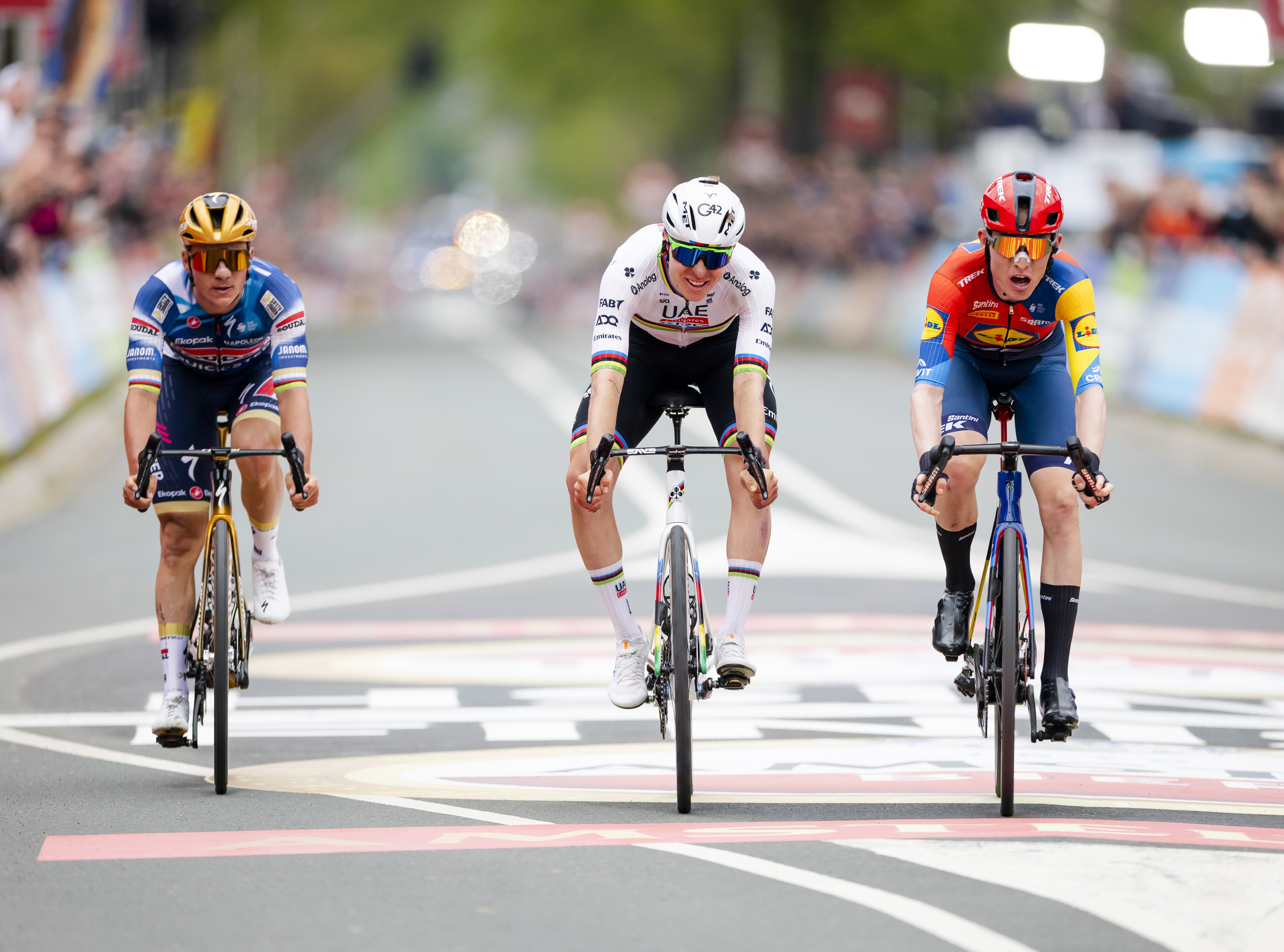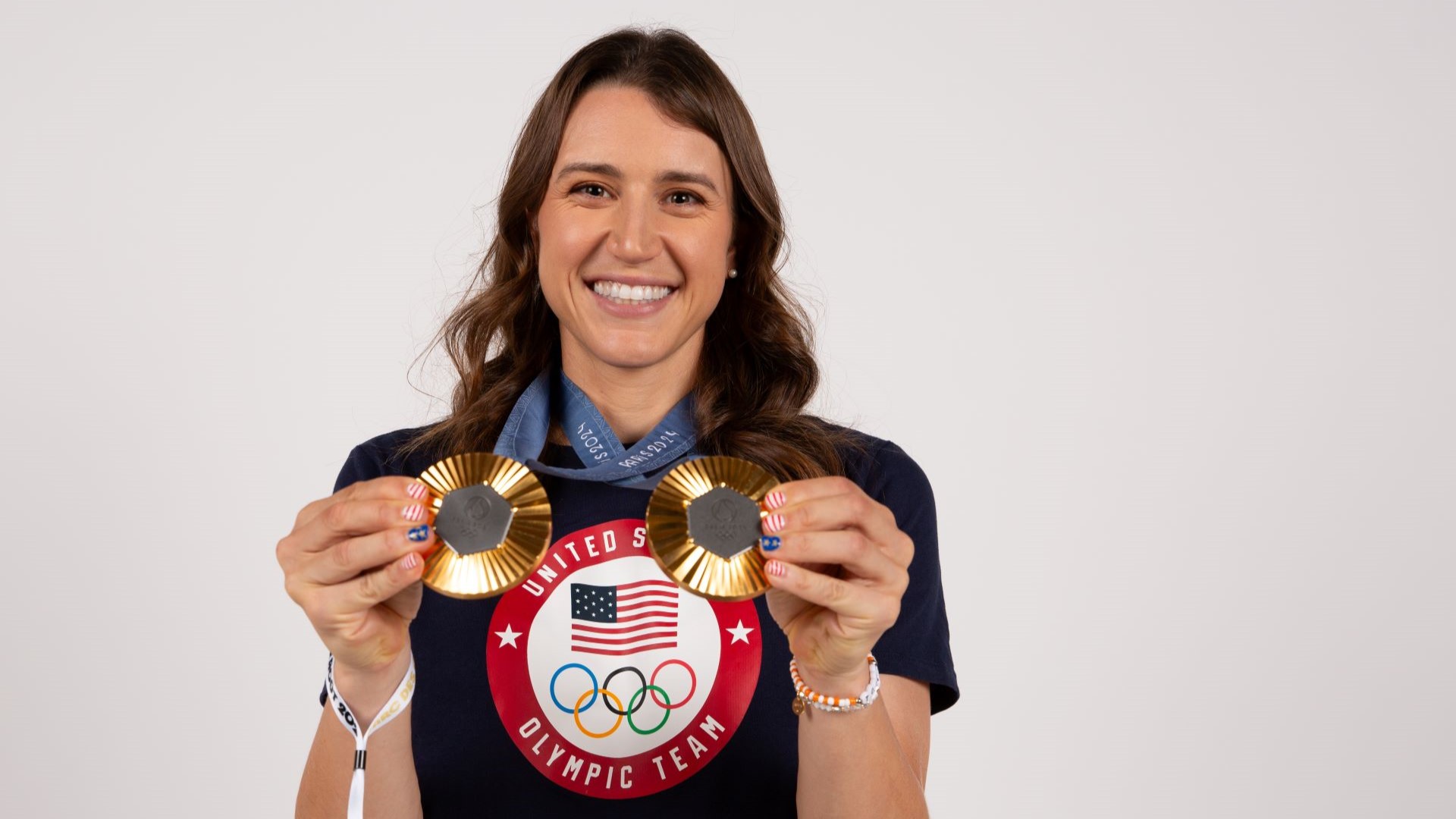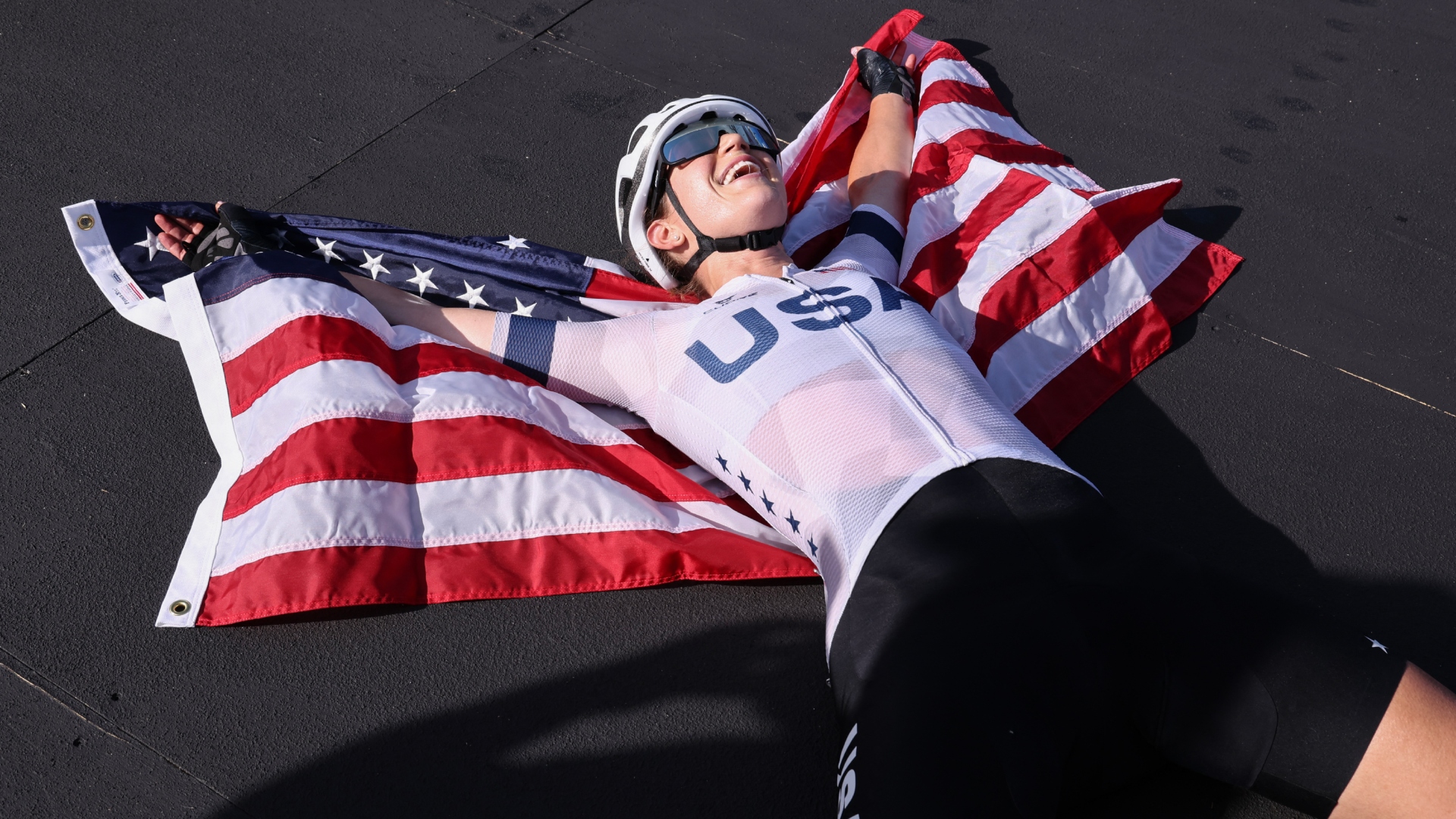Supersapiens boss urges UCI cooperate 'to improve rider health and safety' after Strade Bianche rider DQ
Phil Southerland publishes open letter calling for an "in-person meeting to discuss the UCI’s concerns regarding our technology"


The CEO of Supersapiens, the constant blood glucose monitor (CGM) tech company, has written to the UCI asking for a meeting in order to discuss "how we can work together to improve rider health and safety".
It follows Kristen Faulkner being disqualified from the Strade Bianche podium earlier this month for wearing a Supiersapiens device during the race. The American said she was "very disappointed" in the UCI's decision last week. The device was not transmitting any data during the race, she said.
In a letter sent on Thursday, and published on Friday, Supersapiens' CEO, Phil Southerland, wrote to the UCI's president, David Lappartient, to say "we firmly believe that the beauty and organic nature of the sport would not be altered by the use of Supersapiens CGM technology in UCI races".
Monitors like Supersapiens are designed to offer real-time measurements of blood glucose, and as as a reminder issued by the UCI stated, they are banned in competition.
A short statement from the UCI confirmed after Strade Bianche: "Kristen Faulkner has been disqualified from the 2023 Strade Bianche which took place on 4 March, for breach of article 1.3.006bis of the UCI regulations due to the wearing of a continuous glucose monitoring sensor throughout the event."
"I believe they are a valuable tool for athletes - especially women - to take care of our physical health, though that is a conversation for another time," Faulkner said, in response.
Southerland notes that the UCI is the only sporting body to ban use of continuous glucose monitors in competition. Heart rate monitors and power meters are permitted.
Get The Leadout Newsletter
The latest race content, interviews, features, reviews and expert buying guides, direct to your inbox!
"Data from hundreds of Supersapiens users demonstrates that the professional peloton is under-fuelled, especially during longer blocks of training and racing," he writes. "When chronic underfuelling occurs for a sustained period of time, athletes are at risk of developing RED-S syndrome (Relative Energy Deficiency in Sport), which can have lasting impacts on bone density, immunity, and heart function.
"An additional consequence of under-fuelling for female athletes is that they may begin to experience amenorrhea, the loss of their periods, which can affect their future fertility.
"Consistent use of the technology has empowered hundreds of athletes on an individual basis to optimize fuelling while simultaneously addressing common health issues that are exacerbated by aggressive training regimens and diets in the constant pursuit of weight loss and extraordinary power–to–weight ratios.
"Since day one of Supersapiens, we have worked with sports federations and governing bodies to ensure that neither we (nor any of our athletes) violate rulings. We understand that glucose and real-time visibility are new concepts in the space, so we proactively seek to educate and share our knowledge.
"To date, the UCI is the sole professional sports governing body that has banned the use of CGM. Most leagues are entering into official research partnerships with our organization so that they can better understand the science of glucose and understand how applying the knowledge can protect and improve the health, wellness, and performance of their athletes."
Southerland argues: "I have aimed to be a constructive part of this discussion and I continue to hope for a long-term collaboration so that we can continue to strengthen the cycling community and improve the health and performance of those who participate in our beloved sport."
He suggests a "joint research collaboration" to study CGM technology, and the possibility of a blind in-race trial, as well as an in-person meeting.

Thank you for reading 20 articles this month* Join now for unlimited access
Enjoy your first month for just £1 / $1 / €1
*Read 5 free articles per month without a subscription

Join now for unlimited access
Try first month for just £1 / $1 / €1

Adam is Cycling Weekly’s news editor – his greatest love is road racing but as long as he is cycling, he's happy. Before joining CW in 2021 he spent two years writing for Procycling. He's usually out and about on the roads of Bristol and its surrounds.
Before cycling took over his professional life, he covered ecclesiastical matters at the world’s largest Anglican newspaper and politics at Business Insider. Don't ask how that is related to riding bikes.
-
 'The line was 5 metres too far' - Tadej Pogačar reacts to Amstel Gold Race second place
'The line was 5 metres too far' - Tadej Pogačar reacts to Amstel Gold Race second placeWorld champion reeled back and beaten in sprint by Lidl-Trek's Mattias Skjelmose
By Tom Davidson
-
 'I was riding for the podium' - Mattias Skjelmose pulls off shock Amstel Gold Race win after reeling back Tadej Pogačar attack
'I was riding for the podium' - Mattias Skjelmose pulls off shock Amstel Gold Race win after reeling back Tadej Pogačar attackDane worked with Remco Evenepoel to set up stunning three-way finale
By Tom Davidson
-
 ‘So few people thought I could do anything with cycling. The Olympic medals validated that I should trust my gut more often’ - Kristen Faulkner reflects on her golden week in cycling
‘So few people thought I could do anything with cycling. The Olympic medals validated that I should trust my gut more often’ - Kristen Faulkner reflects on her golden week in cyclingTeam USA's female cyclists won 5 medals in Paris, Faulkner hopes these performances will 'put cycling back on the map for Americans'
By Anne-Marije Rook
-
 11 things you didn’t know about Kristen Faulkner, USA's first Olympic road race medalist in 40 years
11 things you didn’t know about Kristen Faulkner, USA's first Olympic road race medalist in 40 yearsAlaska-born and raised, Harvard grad, collegiate rower, venture capitalist — the newly crowned Olympic road racing champion is multi-faceted
By Anne-Marije Rook